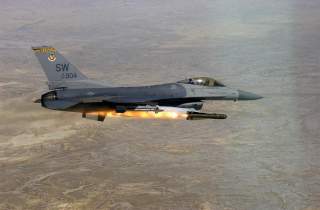Are China and America Destined to Clash?
Almost all of China's foreign-policy options would lead to more conflict with America—and vice versa.
In some sense, the greatest danger for the United States is the illusion that the current strategy of “leadership” or “deep engagement” is benign and unthreatening. China’s pursuit of a policy of “deep engagement” in Latin America or the Caribbean would be viewed by policymakers in Washington as outrageously provocative. As China’s power grows, Beijing's leaders are likely to develop similar intolerance of American aircraft flying near their shores, U.S. warships plying nearby waters and the network of U.S. military bases that surrounds China.
The fundamental problem in U.S.-China relations—the engine of conflict between the two countries—is neither America’s grand strategy nor Beijing’s. China would be entirely reasonable in wanting the ability to defend its airspace and coastal waters from foreign powers. It is also perfectly reasonable for the United States to want to uphold its sixty-year-long security commitments to the region by retaining the ability to move powerful air and naval forces there.
Of course, perhaps a U.S.-China clash will never occur—after all, as with the much-hyped rises of the Soviet Union and Japan, China’s economy may languish or implode; a “Chinese Spring” could also derail its future prosperity. But assuming China’s economy continues to grow at a healthy rate, unless the United States departs from six decades of foreign-policy precedent, or unless China elects to pursue extreme foreign-policy meekness, America’s and China’s reasonable national-security interests will collide. This is how the tragedy of great-power politics unfolds.
Jennifer Lind is an associate professor of government at Dartmouth, and the author of Sorry States: Apologies in International Politics (Cornell, 2008). Follow her on Twitter @profLind.
Daryl Press is an associate professor of government at Dartmouth, and the author of Calculating Credibility: How Leaders Assess Military Threats (Cornell, 2005).
Note: This piece first appeared on September 18, 2013. It is being reposted due to reader interest.

